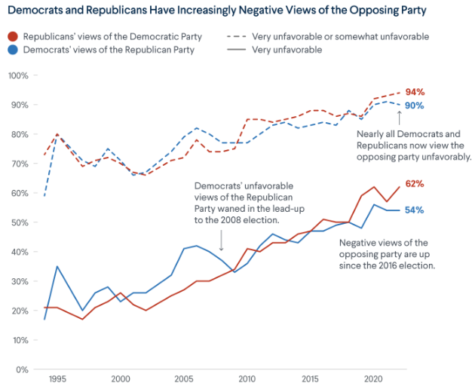Epic Games’ lawsuit against Apple: A mishandled good deed
September 7, 2020
Epic Games sued Apple after the company banned Fortnite from the App Store for incentivizing its users to purchase in-game currency directly through Epic and bypass Apple, a move in violation of Apple’s terms of service.
Any frustration towards Apple and its anti-competitive practices is totally justified on just about anyone’s end. Apple’s disdain for competition is no secret; if you have an iOS device and you want to install apps, you have no other choice but to go through the App Store. Meanwhile, on Android, you can not only install apps from the Play Store, but also just about any other third-party publisher that Apple would not allow on its operating system. Epic made this fact a big part of its case, and I am inclined to agree.
Epic most prominently alleges that the 30 percent cut of revenue Apple takes from in-app purchases is an unlawful amount and that Fortnite’s ban from the App Store for defying such terms is in violation of antitrust policies.
While I agree with the core complaint and hope Epic wins in its lawsuit, I can’t fully take the company at its word in its genuinity. Epic’s recent move reeks of corporate pandering and comes across as not much more than a stunt for publicity.
Where Epic falls short on getting people on its side is the theatrical grandeur the company put behind itself when publicizing its move. Epic used its legal battle to market itself to be ‘for the people’ and ‘against the greedy mega-corporations.’
An example of Epic’s theatricality is its short called “Nineteen Eighty-Fortnite,” which parodies one of Apple’s ads created in 1984. In the short, Epic stated it has “defied the App Store Monopoly;” all the while, characters of Fortnite are animated reenacting the old Apple commercial. This short was teased and released the day Fortnite was banned from the App Store, which was also the day Epic filed suit. With these events happening just hours apart from each other, I’m left to believe that all of this was a calculated move by Epic in an attempt to maximize publicity.
No matter how hard the company may try to appeal to the masses, Epic Games is very much a multi-billion dollar corporation, and it has not earned the right to grandstand over Apple in the hypocritical manner that it has.
Furthermore, Epic’s campaign to “stop 2020 from becoming 1984” also doesn’t come across as very genuine considering that 40 percent of Epic Games is owned by Tencent, a Chinese conglomerate which mainly operates in a country with countless amounts of human rights violations and a social credit system.
Coupled with the theatrical attack against Apple, Epic Games seems to be attacking a commonplace system for just about any online marketplace. The 30 percent in commission that Epic now refuses to pay Apple is a fee that it has been paying to Xbox and PlayStation to sell games on for years.
Commission rates as high as 30 percent are simply unavoidable, and Apple is no stranger to this fact. When questioned at a congressional antitrust hearing a month prior, the company made this exact argument in defense of its commission rates, and Apple substantiated its reasoning with a conclusive study that the company itself commissioned.
I question whether or not Epic can reasonably rebut Apple’s open-and-shut counter-argument that relies on credible research to determine that such a cut is commonplace; on top of all that, Epic would have to convince a judge or a jury to favor its case over Apple’s. Of the two, Apple has level-headed reasoning on its side.
I can’t help but sense the slightest bit of nobility in Epic’s cause, and it’s something I do want to give the company credit for. A victory in a case like this would really benefit the smaller publishers out there who, due to the large cut that Apple takes, would otherwise be discouraged from selling on its marketplace. In that sense, this truly would be a fight for the people and a hit against the monopolies; if you take the hypocrisy out of the equation, the cause Epic is fighting for right now is something I 100 percent support.
However, the magnitude of the cause Epic is fighting for mustn’t discourage legitimate criticism of the company’s handling of it.
Epic encouraged players of Fortnite to adopt an anti-corporate perspective in its fight against Apple, and that comes across as very misleading, considering a large chunk of those players may not even be old enough to recognize Epic’s corporate status and the role it plays in coming to their own conclusion about the consistency of Epic’s message.
I want to see Epic Games succeed in its case against Apple; it would no doubt transform the App Store we know today into one that is infinitely more considerate towards its smaller publishers.
However, Epic has gone to the extreme in sensationalizing its efforts in a legal case that is shaky at best, and with what is at stake here, Epic can’t afford not to live up to the grandiose image it has attempted to associate itself with. Epic’s mishandling of this case is a grave blunder, and it’s one that leaves only Epic itself to blame.








Jason Qin • Sep 8, 2020 at 8:37 am
Thank you for writing a skeptical yet detailed take on the Epic v Apple battle. Another reason Epic may be causing such a ruckus is that the company wants its own app store on iOS, similar to the Epic Games Store it currently runs on PC. Such an app would be incredibly profitable for Epic. By forcing Apple to allow their app store, Epic Games would have legal leverage to convince Google to do the same on Android.